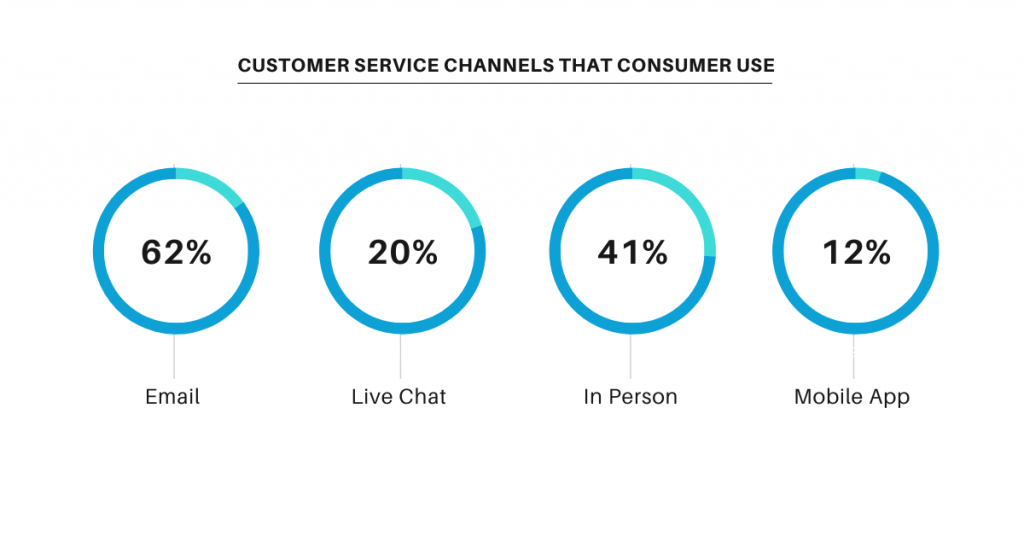The boom in the travel industry is evident. The urge to travel, explore places, and live experiences that make memories for a lifetime has peaked across generations. From millennials seeking off-the-grid adventures to retirees embarking on bucket-list journeys, the craving to explore new destinations and create unforgettable memories knows no bounds.
“The Indian tour and travel sector is poised for robust 12-14% growth in the current and upcoming fiscal years. The growth, despite high airfares, shows cost doesn’t matter when it comes to travelling.”
Skift, Dec 2023
It is safe to assume that there has been a shift in thinking from cost to experience when it comes to travel. Hence, amidst this travel renaissance, the role of exceptional customer support emerges as a vital component in ensuring seamless and satisfying travel experiences for every adventurer.
However, a recent study conducted by PwC reveals a concerning trend: despite the importance of customer experience, there exists a significant gap of 33% between customer expectations and the actual experience provided by airlines, marking the highest disparity among all industries.

Bridging this gap, having discussed the ‘whys’ of customer support in travel, let us look at how you can provide an enhanced experience to each traveler.
1 . Vertical Approach
Data from a study by Deloitte indicates that 72% of consumers expect companies to understand their unique needs and preferences. By implementing a vertical approach in customer support, travel companies can leverage data analytics to segment customers based on factors such as travel preferences, demographics, and past behaviors. This allows for the delivery of tailored assistance and recommendations, enhancing customer satisfaction and loyalty.
For example, a travel company may identify a segment of adventure-seeking millennials who prefer off-the-beaten-path destinations. With this knowledge, the company can customize its support services to include recommendations for adventurous experiences, personalized travel itineraries, and special promotions tailored to this specific segment.
2. Self-Service Options
According to Forrester, 70% of consumers prefer to use self-service options for simple inquiries. Offering self-service options such as online booking portals, online check-in, and automated itinerary management tools empowers travelers to access information and resolve common queries independently. This not only enhances efficiency but also reduces the workload on customer support teams, enabling them to focus on more complex issues.
For instance, a traveler can easily book their flight and accommodation through an online booking portal, selecting their preferred dates, destinations, and amenities with just a few clicks. If they decide to modify their chosen amenities, a self-service portal can guide them step-by-step on how to make the adjustments independently, offering convenience and flexibility throughout their journey.
3. Omnichannel Platforms

Research from Aberdeen Group shows that companies with strong omnichannel customer engagement strategies retain an average of 89% of their customers. By adopting an omnichannel approach to customer support, travel companies can ensure consistency and continuity across multiple touchpoints.
Integrating channels such as a website, mobile app, social media, email, and phone into a cohesive ecosystem enables travelers to receive seamless support irrespective of their preferred communication channel.
For example, a traveler may initiate a support inquiry via the travel company’s website, continue the conversation through a mobile app, and receive follow-up assistance via email or phone. Regardless of the channel used, the traveler experiences a seamless and consistent level of support, enhancing their overall satisfaction with the company’s services.
4. AI and Machine Learning Systems
Data from Gartner reveals that by 2025, 95% of customer interactions will be powered by AI. Leveraging AI and machine learning systems enables travel companies to automate repetitive tasks, analyze vast amounts of data, and deliver personalized recommendations and assistance to travelers.
From chatbots that provide instant responses to predictive analytics that anticipate travelers’ needs, AI-powered systems enhance efficiency, responsiveness, and personalization in customer support.
Picture a passenger browsing an airline’s website to book a flight. They interact with an AI-driven chatbot to explore flight options, baggage allowances, and in-flight amenities. Leveraging predictive analytics, the chatbot suggests tailored flight recommendations based on the passenger’s past travel history and preferences.
With swift responses and proactive assistance, the passenger enjoys a seamless booking experience, enhancing satisfaction and fostering loyalty to the airline.
Conclusion:
“When opportunity presents itself, don’t be afraid to go after it.” — Eddie Kennison.
Eddie Kennison
In the wake of the pandemic, the world has rekindled its love for travel, offering businesses a golden opportunity. Embracing this opportunity means prioritizing the customer above all else.
Crafting an experience so remarkable that every journey becomes unforgettable ensures customers return and spread the word. Ensure your customer support team is well-equipped to address every query and concern, leaving no stone unturned.








